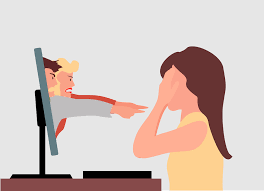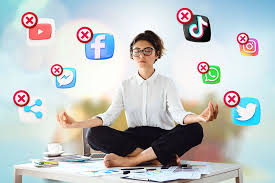Social Media's Negative Impact on Mental Health
In the United Kingdom, we are seeing how social media can harm our mental health, especially for young people. This article will look at how social media can be bad for us. It can lead to addiction, cyberbullying, and body image issues. We will also talk about the fear of missing out and how it can make us feel lonely.
Key Takeaways
- Social media usage can lead to addiction and compulsive behaviours, such as compulsive checking and scrolling.
- Cyberbullying and online harassment can have a significant impact on mental health, particularly for young people.
- Social media can contribute to body image issues and social comparison, as users are exposed to unrealistic beauty standards and curated highlight reels.
- The fear of missing out (FOMO) can exacerbate feelings of loneliness and a lack of real connection.
- Excessive social media usage has been linked to increased rates of anxiety and depression, as well as negative self-talk and rumination.

The Rise of Social Media Addiction
In today's world, social media addiction is growing fast. These platforms are made to keep us hooked, releasing dopamine with every like and share. This endless search for gratification leads to compulsive checking and scrolling.
Social media's charm lies in its instant rewards. The quick dopamine rush from likes can become addictive. This addiction can mess up our lives, affecting work and relationships, and even our mental health.
Checking social media often is a sign of addiction. It can make us unfocused and unproductive. It also makes us lose touch with the present.
Scrolling endlessly is another sign. The endless stream of content keeps us hooked. This not only wastes time but also makes us feel bad about ourselves, worsening our mental health.
Dopamine Hits and Instant Gratification
Social media is designed to make us feel good by releasing dopamine. Every like or comment gives us a quick pleasure. This cycle of seeking more can make us even more addicted to social media.
As we deal with social media, it's key to be aware of its dangers. Understanding why we're addicted helps us take back control. We can then focus on our mental health.
Cyberbullying and Online Harassment
In today's world, social media's anonymity has led to more cyberbullying and online harassment. These problems can really hurt people's mental health, especially young people in the UK. We'll look at how common these issues are, their effects, and how to tackle them.
Cyberbullying is when someone uses digital tools to bully, threaten, or embarrass others. A study found that over 40% of UK teens have faced cyberbullying. Girls are more likely to be bullied than boys.
- Cyberbullying can cause a lot of harm, like anxiety, depression, and even thoughts of suicide in victims.
- Online harassment, which includes stalking, doxing, and hate speech, also harms mental health.
- Young people are especially at risk because they often don't know how to deal with these problems.
To fight cyberbullying and online harassment, we need to educate, make laws, and use technology. We must teach young people how to stay safe online and make sure bullies face consequences.
|
Type of Abuse |
Prevalence in the UK |
Impact on Mental Health |
|
Cyberbullying |
Over 40% of UK teenagers |
Increased anxiety, depression, and suicidal thoughts |
|
Online Harassment |
Widespread, but difficult to quantify |
Severe consequences, including trauma and social withdrawal |
By tackling these big issues, we can make the internet a safer place for everyone. It's our duty to make sure social media's good sides don't get lost in its bad ones.
https://youtube.com/watch?v=Czg_9C7gw0o
Body Image Issues and Social Comparison
Social media is full of body image problems and unhealthy comparisons. We see many edited images that show unrealistic beauty standards. These images can hurt our self-esteem and make us see our bodies in a wrong way.
Unrealistic Beauty Standards
The pictures on social media show perfect, airbrushed bodies that are not real. These curated highlight reels make us think we should look a certain way. This makes us feel not good enough and leads to social comparison.
Curated Highlight Reels
Social media posts only show the best parts of our lives. They make everyone else seem perfect while we struggle with body image issues. Seeing these curated highlight reels makes us feel like we're not good enough.
To deal with social media's bad effects on our mental health, we need to be kinder to ourselves. Recognising the fake nature of these images and focusing on our well-being helps. This way, we can stop comparing ourselves and deal with body image issues.
"The more we're exposed to unrealistic beauty standards on social media, the more we start to believe that's the norm, and the more we compare ourselves to it."
The Fear of Missing Out (FOMO)
In today's world of social media, we see our friends' perfect lives all the time. This can make us feel left out, leading to a fear called FOMO. FOMO makes us want to stay connected and updated all the time.
FOMO can harm our mental health. Seeing others' fun adventures and parties can make us feel not good enough. It makes us focus too much on social media, comparing ourselves to others.
It also makes us act compulsively, like checking social media too much. We try to keep up a perfect image online. This can make us feel anxious and unhappy, stuck in a cycle of comparison.
To fight FOMO, we need to appreciate our own lives more. Realising that social media shows only the best parts helps us. We should focus on what truly makes us happy.
"The fear of missing out is a form of social anxiety - a compulsive concern that one might miss an opportunity for social interaction, a novel experience, a defining moment or life event, or other satisfying events." - Andrew K. Przybylski
Overcoming FOMO means having a healthy view of social media. We should value our own growth and happiness more than what others think. This way, we can enjoy the moment without FOMO's grip.
|
Symptom |
Description |
|
Constant Checking |
Obsessively checking social media for updates, often to the detriment of other activities or responsibilities. |
|
Feelings of Inadequacy |
A sense of not measuring up to the perceived success or experiences of others on social media. |
|
Anxiety and Restlessness |
Experiencing heightened levels of anxiety and an inability to be present due to the fear of missing out. |
|
Impulsive Behaviour |
Engaging in impulsive actions or decisions to keep up with or mimic the experiences of others on social media. |
How social media badly effecting mental health
Social media is everywhere in our digital lives. It seems to offer more connection, but it can make us feel lonely. Seeing perfect lives online can harm our mental health.
Loneliness and Lack of Real Connection
Many feel more isolated than ever, even with lots of online friends. We miss real, face-to-face talks. Loneliness and a lack of real connection come from too much social media.
A study in the American Journal of Health Promotion shows a link. More social media time means more loneliness and isolation. This can lead to depression, anxiety, and other mental health problems.
|
Indicator |
Percentage |
|
Loneliness among social media users |
54% |
|
Lack of real-life connections among social media users |
42% |
We need to balance our digital and real lives. Face-to-face talks, setting social media limits, and building real friendships help. This way, we can fight loneliness and lack of connection.
"The more time people spend on social media, the more likely they are to experience feelings of social isolation."
Anxiety and Depression
Social media use has risen, especially among young people in the UK. It's linked to more anxiety and depression. Too much time on social media can lead to negative thoughts and feelings.
Negative Self-Talk and Rumination
Social media shows perfect lives, making us feel bad about ourselves. We compare our lives to these perfect images. This can make us feel worthless and unhappy.
This thinking can make us anxious and depressed. We worry too much about what others think. Seeking approval online can make these feelings worse.
- Social media's focus on perfect images can lead to negative self-talk and rumination.
- Comparing our lives to others' perfect images can hurt our self-worth and cause anxiety and depression.
- The need for approval on social media can make negative thoughts worse.
"The problem with social media is that it makes us feel so connected, yet so alone. It's a constant reminder of what we're 'missing out' on, and that can be a breeding ground for anxiety and depression."
Balancing Social Media Usage
In today's fast world, it's key to keep a good balance with social media for our mental health. We must set limits and take breaks from the digital world to take back control. This helps us stay healthy online.
Setting Boundaries and Digital Detoxes
Setting clear limits is a great way to balance social media. We can limit our screen time, choose what we see online, and take breaks. These steps help us feel more in control.
- Implement a daily screen time limit, and stick to it religiously.
- Unfollow or mute accounts that promote unrealistic expectations or make you feel inadequate.
- Engage in regular digital detoxes, where you abstain from social media for a set period, such as a day, a weekend, or even a week.
By taking these steps, we can improve our mental health and be more productive. We also feel more present in the real world. It's a win-win situation.

|
Tip |
Description |
|
Limit screen time |
Set a daily limit on the amount of time you spend on social media and stick to it. |
|
Curate your feed |
Unfollow or mute accounts that make you feel negative or insecure. |
|
Take digital breaks |
Engage in regular social media detoxes, where you abstain from platforms for a set period. |
Remember, finding the right balance is a journey. But by taking action, we can improve our mental health. We can also enjoy real connections again.
Conclusion
Social media can deeply affect our mental health. It can be addictive, making us feel lonely and anxious. Cyberbullying and unrealistic images also harm our self-esteem.
Being constantly online can lead to addiction. This can make us feel isolated and depressed. Cyberbullying creates a harmful space that lowers our self-worth. The perfect images we see online can make us compare ourselves and feel bad about our bodies.
But, we can fight these issues by being smart about social media. We can set limits, take breaks, and focus on real-life connections. This way, we can protect our mental health and build stronger relationships in the digital world.
FAQ
What is the impact of social media on mental health?
Social media can harm mental health, especially for young people in the UK. It can lead to addiction, cyberbullying, and body image issues. It also causes FOMO, loneliness, and can increase anxiety and depression.
What is social media addiction and how does it affect mental health?
Social media is designed to be addictive. It releases dopamine, keeping users hooked. This can disrupt daily life and harm mental health.
How does cyberbullying and online harassment impact mental health?
Cyberbullying and harassment on social media can be severe. It can make victims feel scared, anxious, and depressed, especially young people in the UK.
What is the link between social media and body image issues?
Social media shows perfect, edited images. This creates unrealistic beauty standards. It can harm self-esteem, especially in young people.
What is the "fear of missing out" (FOMO) and how does it affect mental health?
Seeing perfect lives on social media can cause FOMO. It makes us feel inadequate and anxious. It stops us from enjoying the moment.
How does social media contribute to loneliness and a lack of real connection?
Social media can make us feel lonely, despite its promise of connection. It shows idealized lives and replaces real relationships. This harms our mental health.
How does social media usage relate to anxiety and depression?
Studies show heavy social media use can lead to anxiety and depression in young people. It can cause negative thoughts and harm mental health.
How can we maintain a healthier relationship with social media?
To stay healthy, set boundaries and take digital detoxes. Limit screen time, choose what you see, and take breaks. This helps control social media use.



You must be logged in to post a comment.